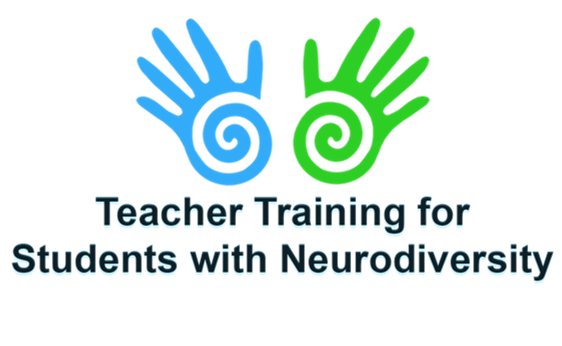GET OUT OF MY FACE, IT’S NOT FAIR AND YOU DON’T UNDERSTAND ME AT ALL
A course for Teachers and Parents on Behaviour for Learning
- Fintan O’Regan
- English


Course Overview
Fintan introduces us to support structures, from Mood Management to Policies, Expectations and Strategies, and the importance of Flexibility, including how to support children with ASD, ADHD and ODD. He walks us through strategies to build rapport, enhance communication and nurture relationships. The course offers significant insight into dealing with bullying and socialisation issues, and culminates with resilience, and how to develop this for future challenges and opportunities.
YOU WILL…
- Gain a deeper understanding of student behaviour.
- Manage behaviour effectively.
- Understand behaviour as a message.
- Understand the impact of mood on learning and teaching.
- Understand the importance of structure, policies and boundaries.
- Understand the vital role of flexibility and relationships.
YOU WILL BE ABLE TO…
- Improve your classroom behaviour management.
- Improve rapport with students who differ in behaviour.
- Benefit from improved relationships with your students.
- Manage bullying more effectively.
- Help build student resilience within your classroom and school community.
- Support those hard-to-reach students in your classroom.
- Improve support for students with poor socialisation skills and anxiety.
- Learn how to bounce back when things aren’t going well.
- Use strategies to support mood and feelings.
YOU WILL GET…
- 7 x 30min (approx.) online, on-demand highly engaging videos.
- Multiple key strategies to support poor student behaviour.
- A profiling kit for Challenging Young People (CYP).
- A boredom checklist.
- A guide for parents on bullying.
- Case studies:
- Boredom – How to identify and manage student boredom.
- Anxiety – How to support students suffering from anxiety.
- Video Gaming – Research evidence into positive features of gaming.
- Homework – How to reduce the negative impact of homework.
- ADHD – How to increase student concentration levels.
- Posters:
- 5 Steps to Managing Negative Emotions.
- 8 Ways Manage Behaviour.
- 12 Tips for Transitioning to High School.

Behaviour as a Message and a Formula for Management SF3R
• The risk factors which can affect behaviour for learning• Understanding the behaviour message
• Introducing the SF3R approach

Mood Management
• Why we should focus on mood instead of behaviour management• How motivation complements mood • Applying this in practice

Structure: Policies and Expectations
• Putting this into practice• Outline how structure helps to develop safety and security for all
• Teacher and parent style with regards to supporting behaviour for learning

Flexibility including how to support children with ASD and ADHD
• Outline how flexibility complements and not contradicts Structure • Specific strategies explored and explained • What is Neurodiversity and how to support learning challenges rather than use behaviour labels?
Rapport and Communication including how to support children with ODD
• To understand how to develop effective rapport through effective communication• Dealing with disruption and defiance
• Rewards and logical consequences

Relationships and dealing with Bullying and socialisation issues
• Developing effective peer to peer and sibling relationships • Dealing with bullying behaviour • Working in Partnership between school and home
Resilience and how to develop this for future challenges and opportunities
• The key factors for resilience • Preparing for transitions • The seven Cs of resilience explored and explained
Behaviour as a Message and a Formula for Management SF3R
• The risk factors which can affect behaviour for learning• Understanding the behaviour message
• Introducing the SF3R approach

Mood Management
• Why we should focus on mood instead of behaviour management• How motivation complements mood • Applying this in practice

Structure: Policies and Expectations
• Putting this into practice• Outline how structure helps to develop safety and security for all
• Teacher and parent style with regards to supporting behaviour for learning

Flexibility including how to support children with ASD and ADHD
• Outline how flexibility complements and not contradicts Structure • Specific strategies explored and explained • What is Neurodiversity and how to support learning challenges rather than use behaviour labels?
Rapport and Communication including how to support children with ODD
• To understand how to develop effective rapport through effective communication• Dealing with disruption and defiance
• Rewards and logical consequences

Relationships and dealing with Bullying and socialisation issues
• Developing effective peer to peer and sibling relationships • Dealing with bullying behaviour • Working in Partnership between school and home
Resilience and how to develop this for future challenges and opportunities
• The key factors for resilience • Preparing for transitions • The seven Cs of resilience explored and explained
Liz Dunoon is a teacher and a mother to 3 children all with dyslexia. She is the author of 4 books including ‘Helping Children With Dyslexia’, the creator of the Speech to Spelling Code (STOS) and the video based on line tutoring program ‘The Ten Minute Tutor’(TTMT).
Liz has spent the last 15 years researching and studying dyslexia and Specific Learning Difficulties. She supports individuals, parents and teachers. She networks with dyslexia researchers, specialists and educators from around the world, researching new information and material and presenting it in such a way so parents, teachers and dyslexia specialist can utilise this See More…

Jillian Zocher is Specific Learning Difficulties Specialist for students across the age range. She completed a Postgraduate Diploma in Specific Learning Difficulties in conjunction with the Helen Arkell Dyslexia Centre (UK) and The Oxford and Cambridge Royal Society of Arts in 2002, after years of having taught at dyslexia friendly schools overseas. Jillian has helped hundreds of teachers with their Professional Development needs, and thousands of students, not only with literacy and numeracy, but also with study skills, technology skills, strengths profiling, career counselling, anxiety and well-being. She is known amongst her colleagues as an ‘educational therapist’. Jillian offers professional development for educators, support for parents, one on one support See More…
- This course will contribute 4.5 hours of NSW Education Standards Authority and Teacher Quality Institute PD addressing 6.2.2 from the Australian Professional Standards for Teachers towards maintaining Proficient Teacher Accreditation with the NSW and Canberra Governments.
- This course will contribute 4.5 hours of PD with the Texas Education Agency, Michigan SCECH and the Los Angeles Unified State Department.
- These 4.5 hours of PD can be logged as ‘Self-Identified Accredited Professional Development’ if you are from outside any of the above education authorities.

This course includes
- 8+ video sessions
- 3 months access
- Course materials
- Weekly inspirational resources
- Weekly updates on Neuordiversity/SpLD’s
- Professional Accredited Certificate
Click below to check out the pricing.
Have a Question?
Best experienced with...



